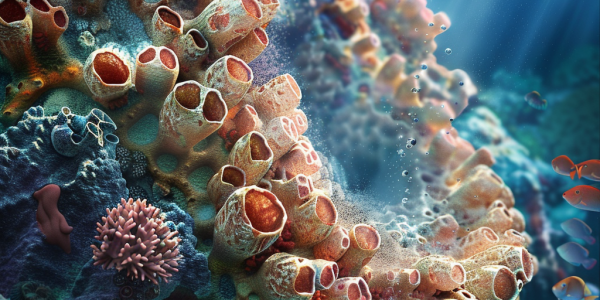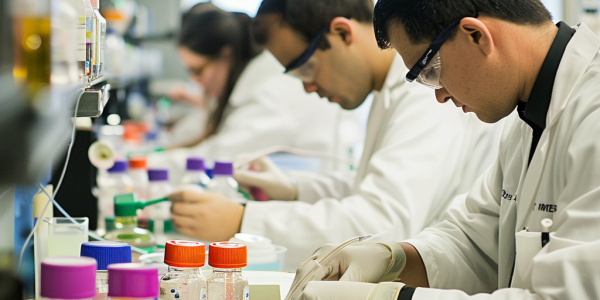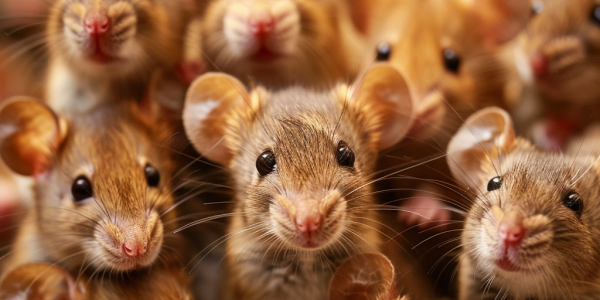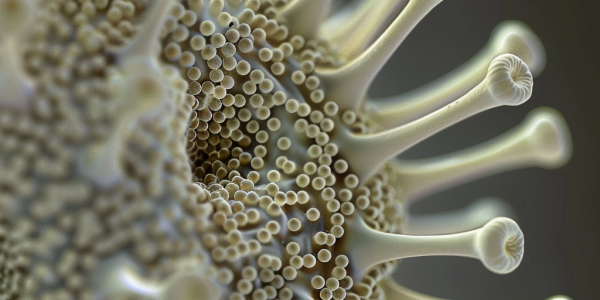China Develops First Autonomous Underwater Vehicle for Deep-Sea Microbial Sampling
Tianjin University has unveiled China’s first autonomous underwater vehicle (AUV) for deep-sea microbial sampling, revolutionizing marine research. This innovative AUV, tested in the South China Sea, enhances data collection efficiency and preserves microbial genes, crucial for studying ocean biodiversity. With potential implications for ecological balance and resource discovery, this advancement positions China at the forefront of marine biology. Explore how this technology could reshape our understanding of deep-sea ecosystems and contribute to environmental conservation.
Study Reveals Diverse Viral Communities in Household Bathrooms
Recent research from Northwestern University reveals a surprising diversity of viruses in everyday bathroom items like showerheads and toothbrushes. Led by microbiologist Erica Hartmann, the study identifies over 600 unique viral species, many of which are bacteriophages that could offer new treatments for bacterial infections. This groundbreaking work emphasizes the importance of understanding microbial ecosystems in our homes and their implications for health and sanitation.
Marine Sponge Microbe Reveals Insights into Tuberculosis Evolution
Recent research reveals a marine sponge bacterium, Mycobacterium spongiae, shares 80% of its genetic material with Mycobacterium tuberculosis, offering insights into TB evolution. This discovery, made by scientists from the University of Queensland, could lead to innovative treatments and preventative measures against tuberculosis, a major global health threat.
AppET Rajasthan Awards 2024 Now Open for Entries Celebrating Industry Excellence
The AppET Rajasthan Awards 2024 are now open for entries, celebrating excellence in sectors like Government, Health, and Food Safety. This prestigious event offers businesses a platform to showcase innovative practices and gain recognition for their contributions. Participants are encouraged to submit projects emphasizing innovation and community impact, while also addressing critical issues like food safety and microbial contamination. Join industry leaders in this opportunity to connect and foster advancements in your sector.
MIT Engineers Develop Groundbreaking Method to Protect Microbes from Extreme Conditions
MIT engineers have developed a groundbreaking method to protect microbes from extreme conditions, enhancing their resilience with FDA-approved food and drug additives. This innovative technique has enabled microbes to withstand high temperatures, radiation, and industrial processing, with potential applications in space missions, human health, and agriculture.
New Mathematical Model Sheds Light on Absence of Breastfeeding in Male Mammals
New mathematical model sheds light on absence of breastfeeding in male mammals. Study proposes evolutionary strategy to control spread of harmful microbes. Owl monkey fathers and Dayak fruit bats challenge traditional theories. Male avoidance of breastfeeding may be linked to diverse milk microbiome. Research offers fresh perspective on parental care and microbial transmission in mammalian populations.
Study Reveals Gut Microbiome’s Role in Age-Related Inflammation
Recent research reveals the potential role of the gut microbiome in age-related inflammation. A study found that transplanting gut microbes from aged mice into young mice increased inflammation, highlighting a link between gut microbiome changes and systemic inflammation in aging individuals. The researchers emphasized the importance of understanding this relationship to combat age-related health issues.
Microbial Life Discovered in Atacama Desert
Scientists have discovered a hidden underground habitat in the Chilean Atacama Desert, challenging previous beliefs about the region’s biodiversity. Through innovative DNA analysis techniques, researchers found microbial communities thriving in the hyperarid soils, shedding light on life’s resilience in extreme environments. This groundbreaking study, published in PNAS Nexus, has implications for astrobiology and expands our understanding of desert ecosystems.
Link Between F. nucleatum Bacteria and Colorectal Cancer Discovered
Scientists have discovered a link between the bacteria Fusobacterium nucleatum and colorectal cancer, with a specific subtype identified as a key player in fueling cancer growth. Research published in Nature shows how this bacterium can survive in acidic conditions, promote precancerous growths, and produce compounds conducive to tumor growth. Understanding the role of microbes like Fna C2 in disease progression opens up possibilities for targeted interventions to prevent its impact on colorectal cancer development.
Discovery of Antibacterial Umbrella Particles in Streptomyces Bacteria
Recent research in Nature reveals how Streptomyces bacteria produce unique umbrella particles to inhibit the growth of competing bacterial species. These antibacterial complexes contain polymorphic toxin proteins and lectin components, targeting specific Streptomyces species. Unlike broad-acting antibiotics, umbrella particles mediate competition among related species, offering insights into bacterial dynamics in soil ecosystems and potential for novel antimicrobial strategies.










